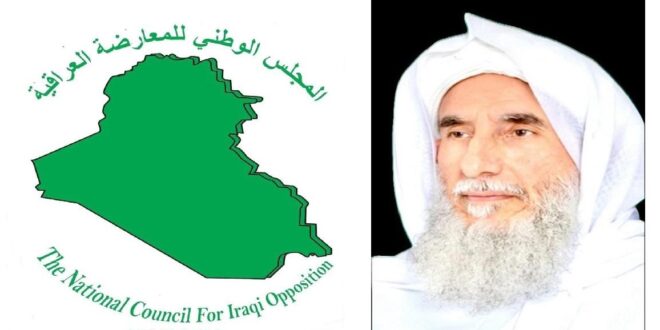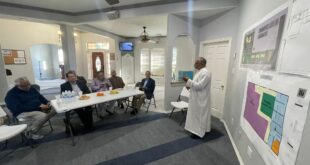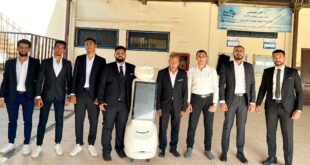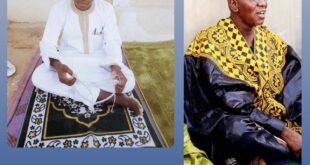العراق بلد التأريخ والحضارات، موطن سيدنا إبراهيم والأنبياء والرسل عليهم الصلاة والسلام، وبلد العلماء والأولياء، صاحب أقدم الحضارات، سومر وأكد وبابل وآشور، والحضارات الإسلامية كالكوفة والبصرة وبغداد وسامراء ونينوى، غني بالثروات الطبيعية والموارد البشرية، ووفقا لكثير من المصادر يمتلك العراق 8% من احتياط النفط العالمي، و 12% من احتياط أوبك و 17% من احتياط الشرق الأوسط من النفط الخام ما يجعله في المرتبة الخامسة على مستوى العالم بعد فنزويلا وروسيا والمملكة العربية السعودية وإيران، وثاني أكبر منتج للنفط الخام في أوبك، حيث تنتج أوبك حوالي 79.1% من النفط الخام في العالم، فاحتياطيِّهُ من النفط تكفي لتلبية الإحتياجات لمدة تقارب 475 عام، استنادًا إلى مستويات الاستهلاك الحالية واستبعاداً للاحتياطيات غير المثبتة، ومع ذلك، يقول البعض إننا قد لا نفقد النفط أبدًا لأن هناك إمكانية لاكتشاف آبار جديدة في جوف الأرض، 20٪ من احتياطيات النفط في العراق تقع في شمالي العراق، بالقرب من كركوك، والموصل، وخانقين، ويُقدّر أن حقل كركوك النفطي يحتوي على نحو تسعة مليارات برميل من النفط القابل للاستخراج،
تم اكتشاف النفط في كركوك عام 1927، رغم أنه قد تكون هناك علامات على وجود حقول نفط في المنطقة منذ العصور التوراتية،
ينتج حقل كركوك النفطي في العراق ما يصل إلى مليون برميل من النفط يومياً أو أكثر، وهو ما يُمثل جزءاً مهماً في صادرات النفط العراقية، التي يتم تصديرها عبر خط أنابيب كركوك إلى ميناء جيهان التركي،
مشكلة العراق الحقيقية تكمن بالفشل في الجانب السياسي بداية ونهاية، من هنا فالأمر يتطلب وجود نظام حُكمٍ وطني لإنقاذ العراق وشعبه، ثم ربط ثرواته النفطية والمعدنية وممتلكاته الأخرى بنهضة تنموية وطنية شاملة، وتطويرها واستثمارها بما يخدم الدولة والشعب، نعمل أن يكون العراق لأهله العراقيين الحقيقيين أهل الثوابت والقيم والشرف والكفاءة والمباديء والغيرة والكرامة والمكانة والوطنية.
Iraq is a country of history and civilizations, the homeland of our master Ibrahim and the prophets and messengers, peace be upon them. It is a land of scholars and saints, home to the oldest civilizations: Sumer, Akkad, Babylon, and Assyria, as well as the Islamic civilizations like Kufa, Basra, Baghdad, Samarra, and Nineveh. It is rich in natural resources and human capital. According to many sources, Iraq possesses 8% of the world’s oil reserves, 12% of OPEC reserves, and 17% of the reserves in the Middle East, placing it fifth in the world after Venezuela, Russia, Saudi Arabia, and Iran. It is also the second-largest producer of crude oil in OPEC, which accounts for about 79.1% of the world’s crude oil production. Its oil reserves are sufficient to meet demands for nearly 475 years, based on current consumption levels and excluding unconfirmed reserves. However, some argue that we may never lose oil as there is potential for discovering new wells underground. Twenty percent of Iraq’s oil reserves are located in northern Iraq, near Kirkuk, Mosul, and Khanaqin, with the Kirkuk oil field estimated to hold about nine billion barrels of recoverable oil.
Oil was discovered in Kirkuk in 1927, although there may have been signs of oil fields in the region since biblical times. The Kirkuk oil field in Iraq produces up to one million barrels of oil per day or more, representing a significant portion of Iraqi oil exports, which are transported via the Kirkuk pipeline to the Turkish port of Ceyhan.
Iraq’s real problem lies in its failure on the political front, from beginning to end. Therefore, it requires a national governance system to save Iraq and its people, and then to link its oil, mineral wealth, and other properties to a comprehensive national development renaissance, developing and investing them in a way that serves the state and its people. We hope that Iraq will belong to its true Iraqi people—those of principles, values, honor, competence, integrity, jealousy, dignity, standing, and patriotism.



